(Loosely Told in Three Acts)
1. "There are two kinds of companies--those that work to raise prices and those that work to lower them."--Jeff Bezos, founder and CEO of Amazon.com
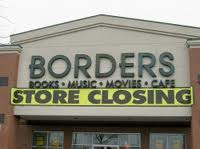 On February 15, 2011, few were surprised by the news Borders had filed for bankruptcy. Bookstores around the country have been suffering from the same fate. A few days earlier, indie stalwart Powell's Books, Portland, Ore., announced it was laying off 7% of its workforce. The regional bookseller Joseph-Beth Booksellers entered bankruptcy with nine stores and emerged with five stores, one of which is closing. In a search through retail obituaries, we'd find 18 bookstores closed, went bankrupt or were in search of a new owner since Borders entered bankruptcy in February.
On February 15, 2011, few were surprised by the news Borders had filed for bankruptcy. Bookstores around the country have been suffering from the same fate. A few days earlier, indie stalwart Powell's Books, Portland, Ore., announced it was laying off 7% of its workforce. The regional bookseller Joseph-Beth Booksellers entered bankruptcy with nine stores and emerged with five stores, one of which is closing. In a search through retail obituaries, we'd find 18 bookstores closed, went bankrupt or were in search of a new owner since Borders entered bankruptcy in February.
Given the grim news, how can retail booksellers continue to stay in business? Empty bromides like "Work Harder!" and "Do Something Different!" fray the nerves of those working at bookstores around the country. Maybe things would be different if we could clearly see how to be different.
2. "CSV-5 has better throughput, but Cal-12 has better pavement. That is typical--Fairlanes roads emphasize getting you there, for Type A drivers, and Cruiseways emphasize the enjoyment of the ride for Type B drivers."--Neal Stephenson in Snowcrash
Kevin Maney, the longtime technology writer for USA Today, has a theory that businesses have one of two options when they compete. The first option is to compete on convenience--make a simple-to-use product, make it widely available and charge the lowest possible price. Oreo cookies and Netflix come to mind.
The second option is to pursue fidelity: produce a high-resolution experience which the customer values for its uniqueness. My mother's homemade Grand Champion chocolate chip cookies and Avatar in IMAX 3-D contrast well to convenient alternatives.
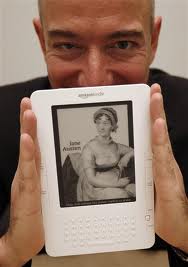 Maney says when Amazon launched the Kindle, it pursued the fidelity side of the continuum. In interviews at the time, Jeff Bezos talked about the importance of emulating the experience of reading a book--the size of the screen, the weight of the object. Bezos even mentioned that the product team studied the book's vanilla-like scent and considered how to include that in the device. The entire approach left the market confused. Amazon was a company that for its entire existence had pursued one goal: using low prices, infinite shelf space and quick delivery to make buying things as convenient as possible.
Maney says when Amazon launched the Kindle, it pursued the fidelity side of the continuum. In interviews at the time, Jeff Bezos talked about the importance of emulating the experience of reading a book--the size of the screen, the weight of the object. Bezos even mentioned that the product team studied the book's vanilla-like scent and considered how to include that in the device. The entire approach left the market confused. Amazon was a company that for its entire existence had pursued one goal: using low prices, infinite shelf space and quick delivery to make buying things as convenient as possible.
With the introduction of Kindle 2 in 2009, Amazon reverted to its old message. "Books in 60 seconds" was the new tagline. Everything in Amazon's marketing and PR since then has been about convenience. Each chance it gets, the retailer announces that e-book sales are overtaking some form of print book (using subjective statistics). Every week in the New York Times Book Review, its full-page ad opposite the week's bestseller lists tells readers how easily they can download any of those titles from Amazon. Convenience has come in the form of lower and lower prices, most recent being the addition of an ad-supported Kindle that costs $114.
E-books and the myriad of devices people will use to read books play directly to the market of convenience, a market that retail storefronts selling "p-books" will never be able to properly satisfy.
3. "Bookselling was and is for me a cultural and political expression, an expression of progressive change, of a challenge to oppressive authority, of a search for a community of values which can act as an underpinning of a better world. The true profit in bookselling is the social profit; the bottom line, the measure of the impact of the bookshop on the community."--A. David Schwartz (1938-2004)
 The passing of Seattle bookseller Kim Ricketts caused me to reflect on what she accomplished and what it means to the retail segment of book publishing. Anyone in bookselling knows the story of Kim's migration from the University of Washington bookstore to her own business creating events that sold books. I was fortunate to be a beneficiary of her efforts firsthand during the launch of The 100 Best Business Books of All Time in 2009. At corporate events, like the one I spoke at, as well as her other events, Kim brought together wonderful groups of people who shared curiosities and passions. And while it is important for me to pay tribute Kim and the business she built, it is even more important for all of us to understand what Kim Ricketts Book Events exemplifies for the future of bookselling.
The passing of Seattle bookseller Kim Ricketts caused me to reflect on what she accomplished and what it means to the retail segment of book publishing. Anyone in bookselling knows the story of Kim's migration from the University of Washington bookstore to her own business creating events that sold books. I was fortunate to be a beneficiary of her efforts firsthand during the launch of The 100 Best Business Books of All Time in 2009. At corporate events, like the one I spoke at, as well as her other events, Kim brought together wonderful groups of people who shared curiosities and passions. And while it is important for me to pay tribute Kim and the business she built, it is even more important for all of us to understand what Kim Ricketts Book Events exemplifies for the future of bookselling.
Too few booksellers understand that the only strategic play for this entire retail segment is on the fidelity side of the continuum. Kim understood this in spades. Her popular Cooks & Books events attracted the country's top chefs to share a meal and tell stories to those gathered from the foodie community of Seattle. Each attendee went home with latest cookbook from that celebrity and wonderful memories. For that privilege, attendees paid two to four times the cover price of the book.
800-CEO-READ, the book retailer in Milwaukee where I spent six years, is a niche player with its specialty in business books, but that fails to explain fully its different approach to fidelity. While the book retail distribution system is designed to get a single book into the hands of an individual, selling one book at a time, 800-CEO-READ sells tens or hundreds of books at a time to organizations that use books for meetings, training or large industry events. While the revenue and the margins are markedly better, these orders generate a different set of costs--including a call center to manage the requirements of corporate sales to a shipping department that understands global logistics. It is hard to call this bookselling by standards we are all familiar with.
 In its flagship City of Books location, Powell's Books has created a Disneyland-like destination--I don't mean in the costumed characters sense (though you can get a green-screened photo of yourself in front of the store printed on a T-shirt). The store stocks more than a million new and used copies of books, more than in any Barnes & Noble. Like Ameoba Records in Hollywood, Calif., Powell's has created a high definition experience that makes the store a destination for any book lover.
In its flagship City of Books location, Powell's Books has created a Disneyland-like destination--I don't mean in the costumed characters sense (though you can get a green-screened photo of yourself in front of the store printed on a T-shirt). The store stocks more than a million new and used copies of books, more than in any Barnes & Noble. Like Ameoba Records in Hollywood, Calif., Powell's has created a high definition experience that makes the store a destination for any book lover.
Epilogue
Kevin Maney offers a final caution. Trying to offer both convenience and fidelity is a strategic mirage and will lead customers to wonder why they need your products. Starbucks doesn't want to admit that as a 17,000 store global chain it is a convenience play (and the reason VIA "Ready Brew" is successful is because of that). The U.S. Postal Service, which lost $2.6 billion in the first quarter, lives in the dying space between the next-day fidelity of FedEx and the convenience of text messages. Do we need to talk about 35mm film?
Booksellers need to realize that Amazon is not their competition; convenience is. Retail booksellers need to provide higher fidelity experiences for their customers and answer the question: "What can I do better?" Or put another way: the book is the start, and not the end to the experience customers want to have.
 Todd Sattersten is the founder of BizBookLab, a company that identifies, develops, and launches business books around the world. He lives in Portland, Ore.
Todd Sattersten is the founder of BizBookLab, a company that identifies, develops, and launches business books around the world. He lives in Portland, Ore.
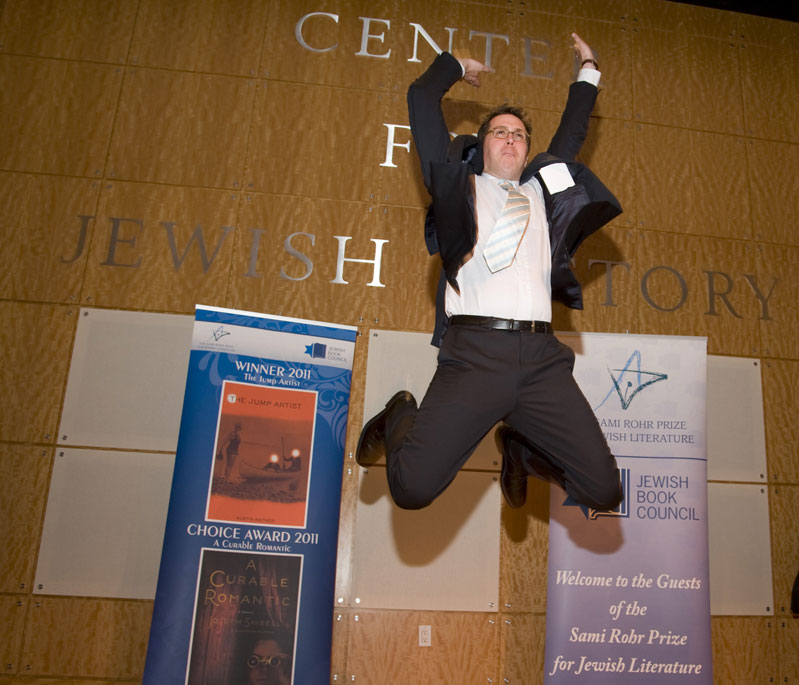










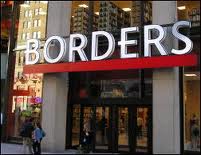 Gores Group, a private equity firm based in Los Angeles, is in discussions to purchase more than 200 of Borders's 405 remaining stores "in a deal that would keep the bookstore chain operating as a going concern," according to the
Gores Group, a private equity firm based in Los Angeles, is in discussions to purchase more than 200 of Borders's 405 remaining stores "in a deal that would keep the bookstore chain operating as a going concern," according to the 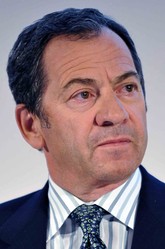 A brief profile of Alec Gores in the
A brief profile of Alec Gores in the  The last nine Borders stores in Australia will close during the next two months,
The last nine Borders stores in Australia will close during the next two months,  On Tuesday, the California State Assembly passed a bill "aimed at closing a legal loophole that allows Amazon.com Inc. and other Internet retailers to avoid collecting California sales taxes on purchases made via computer," the
On Tuesday, the California State Assembly passed a bill "aimed at closing a legal loophole that allows Amazon.com Inc. and other Internet retailers to avoid collecting California sales taxes on purchases made via computer," the 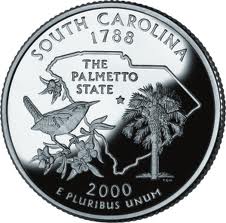 In South Carolina, the House voted 90-14 to approve a compromise brokered last week in the Senate. The measure now goes to Governor Nikki Haley, who previously said she will not veto it. The Associated Press (via the
In South Carolina, the House voted 90-14 to approve a compromise brokered last week in the Senate. The measure now goes to Governor Nikki Haley, who previously said she will not veto it. The Associated Press (via the  Three in 10 British children live in households that do not contain a single book, according to a recent survey by the National Literacy Trust of more than 18,000 young people across U.K. The
Three in 10 British children live in households that do not contain a single book, according to a recent survey by the National Literacy Trust of more than 18,000 young people across U.K. The 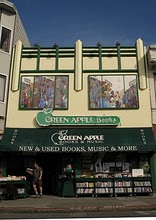 What do the booksellers at
What do the booksellers at 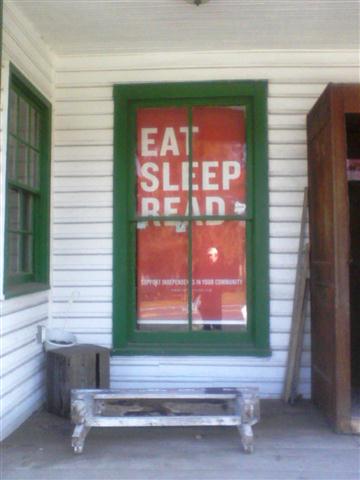 Author Caroline Leavitt
Author Caroline Leavitt 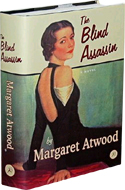 Margaret Atwood's The Blind Assassin is under discussion on
Margaret Atwood's The Blind Assassin is under discussion on 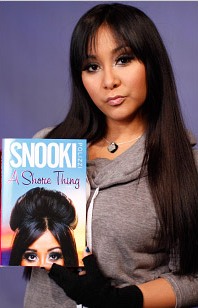 One price we all pay for other peoples' fame is that increasingly the novel "has become another piece of merchandise stamped with the name of celebrities, who often pass off the book as their work alone despite the nearly universal involvement of ghostwriters. And the publishing industry has been happy to oblige," the
One price we all pay for other peoples' fame is that increasingly the novel "has become another piece of merchandise stamped with the name of celebrities, who often pass off the book as their work alone despite the nearly universal involvement of ghostwriters. And the publishing industry has been happy to oblige," the 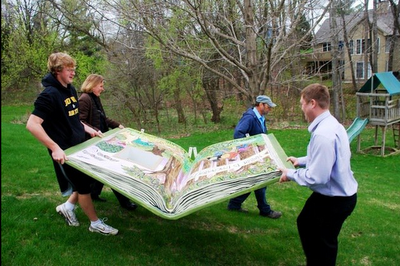 Cool idea of the day: In the tradition of Chicago's legendary
Cool idea of the day: In the tradition of Chicago's legendary  Font geeks take note: Making Faces: Metal Type in the 21st Century is a new documentary by Richard Kegler about the late Jim Rimmer, the Canadian designer of nearly 200 typefaces.
Font geeks take note: Making Faces: Metal Type in the 21st Century is a new documentary by Richard Kegler about the late Jim Rimmer, the Canadian designer of nearly 200 typefaces. 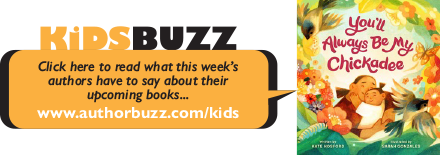
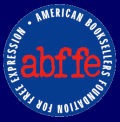 "These complaints arise all over the country. There is no geographic center," said Joan Bertin, executive director of the National Coalition Against Censorship, in her opening remarks last week as moderator of the BEA panel "Book Banning 2011: A Report from the Front Lines of the Battle for Free Speech." Bertin observed that complaints "involve not just the books you might expect, but also books you might not think of," and noted there has been an increasing number of "attacks on high school advance placement classes."
"These complaints arise all over the country. There is no geographic center," said Joan Bertin, executive director of the National Coalition Against Censorship, in her opening remarks last week as moderator of the BEA panel "Book Banning 2011: A Report from the Front Lines of the Battle for Free Speech." Bertin observed that complaints "involve not just the books you might expect, but also books you might not think of," and noted there has been an increasing number of "attacks on high school advance placement classes."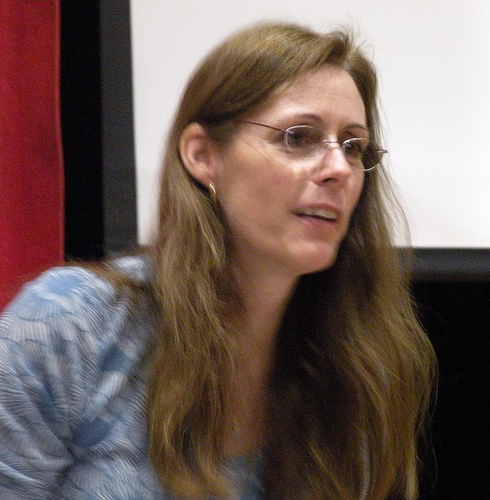 Anderson looked beyond the headlines to try to understand the motivations behind book challenges. "I'm a preacher's kid," she said. "My dad is a Methodist minister. I understand the conservative mindset, especially the religious conservative mindset."
Anderson looked beyond the headlines to try to understand the motivations behind book challenges. "I'm a preacher's kid," she said. "My dad is a Methodist minister. I understand the conservative mindset, especially the religious conservative mindset." 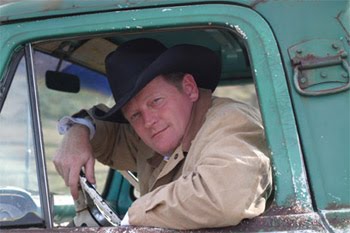 Mystery author and Wyoming resident Craig Johnson knows not to appear at signings without his signature accessory: a cowboy hat. Although space is at a premium when he travels by motorcycle, "I have to designate one entire saddlebag just for holding my hat," he said. One year he sported a baseball cap on tour instead. "Everybody was totally disappointed. Every time I showed up at an event people asked, 'Where's your hat?' "
Mystery author and Wyoming resident Craig Johnson knows not to appear at signings without his signature accessory: a cowboy hat. Although space is at a premium when he travels by motorcycle, "I have to designate one entire saddlebag just for holding my hat," he said. One year he sported a baseball cap on tour instead. "Everybody was totally disappointed. Every time I showed up at an event people asked, 'Where's your hat?' "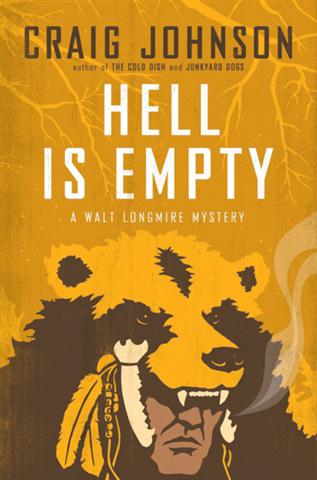 The abode is situated in the shadow of the Bighorn Mountains, where much of Hell Is Empty takes place. In his latest adventure, Longmire aids an FBI taskforce transporting a group of prisoners though the mountains. When the convicts escape and reinforcements are trapped by impassable roads during a severe snowstorm, it's up to the sheriff to stop the bad guys.
The abode is situated in the shadow of the Bighorn Mountains, where much of Hell Is Empty takes place. In his latest adventure, Longmire aids an FBI taskforce transporting a group of prisoners though the mountains. When the convicts escape and reinforcements are trapped by impassable roads during a severe snowstorm, it's up to the sheriff to stop the bad guys.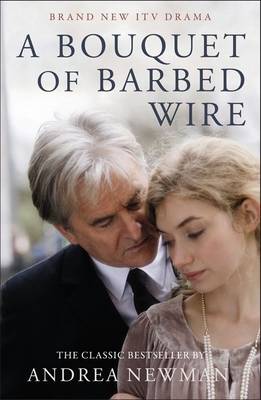 When this novel was first published in 1969, followed by a steamy TV adaptation, it was quite controversial. Now, the book is back and another TV version was recently screened in the U.K., though not yet available in the U.S. At first blush, the tale of a father's obsessive love for his daughter might seem like a limited theme, but before story's end there is a good bit of discussion and psychological meandering about an appetite for violence on the part of the mother and daughter, Cassie and Prue, that overrides the scintillating whiff of possible incest.
When this novel was first published in 1969, followed by a steamy TV adaptation, it was quite controversial. Now, the book is back and another TV version was recently screened in the U.K., though not yet available in the U.S. At first blush, the tale of a father's obsessive love for his daughter might seem like a limited theme, but before story's end there is a good bit of discussion and psychological meandering about an appetite for violence on the part of the mother and daughter, Cassie and Prue, that overrides the scintillating whiff of possible incest.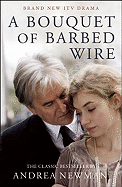
 On February 15, 2011, few were surprised by the news Borders had filed for bankruptcy. Bookstores around the country have been suffering from the same fate. A few days earlier, indie stalwart Powell's Books, Portland, Ore., announced it was laying off 7% of its workforce. The regional bookseller Joseph-Beth Booksellers entered bankruptcy with nine stores and emerged with five stores, one of which is closing. In a search through retail obituaries, we'd find 18 bookstores closed, went bankrupt or were in search of a new owner since Borders entered bankruptcy in February.
On February 15, 2011, few were surprised by the news Borders had filed for bankruptcy. Bookstores around the country have been suffering from the same fate. A few days earlier, indie stalwart Powell's Books, Portland, Ore., announced it was laying off 7% of its workforce. The regional bookseller Joseph-Beth Booksellers entered bankruptcy with nine stores and emerged with five stores, one of which is closing. In a search through retail obituaries, we'd find 18 bookstores closed, went bankrupt or were in search of a new owner since Borders entered bankruptcy in February. Maney says when Amazon launched the Kindle, it pursued the fidelity side of the continuum. In interviews at the time, Jeff Bezos talked about the importance of emulating the experience of reading a book--the size of the screen, the weight of the object. Bezos even mentioned that the product team studied the book's vanilla-like scent and considered how to include that in the device. The entire approach left the market confused. Amazon was a company that for its entire existence had pursued one goal: using low prices, infinite shelf space and quick delivery to make buying things as convenient as possible.
Maney says when Amazon launched the Kindle, it pursued the fidelity side of the continuum. In interviews at the time, Jeff Bezos talked about the importance of emulating the experience of reading a book--the size of the screen, the weight of the object. Bezos even mentioned that the product team studied the book's vanilla-like scent and considered how to include that in the device. The entire approach left the market confused. Amazon was a company that for its entire existence had pursued one goal: using low prices, infinite shelf space and quick delivery to make buying things as convenient as possible. The passing of Seattle bookseller Kim Ricketts caused me to reflect on what she accomplished and what it means to the retail segment of book publishing. Anyone in bookselling knows the story of Kim's migration from the University of Washington bookstore to her own business creating events that sold books. I was fortunate to be a beneficiary of her efforts firsthand during the launch of The 100 Best Business Books of All Time in 2009. At corporate events, like the one I spoke at, as well as her other events, Kim brought together wonderful groups of people who shared curiosities and passions. And while it is important for me to pay tribute Kim and the business she built, it is even more important for all of us to understand what Kim Ricketts Book Events exemplifies for the future of bookselling.
The passing of Seattle bookseller Kim Ricketts caused me to reflect on what she accomplished and what it means to the retail segment of book publishing. Anyone in bookselling knows the story of Kim's migration from the University of Washington bookstore to her own business creating events that sold books. I was fortunate to be a beneficiary of her efforts firsthand during the launch of The 100 Best Business Books of All Time in 2009. At corporate events, like the one I spoke at, as well as her other events, Kim brought together wonderful groups of people who shared curiosities and passions. And while it is important for me to pay tribute Kim and the business she built, it is even more important for all of us to understand what Kim Ricketts Book Events exemplifies for the future of bookselling. In its flagship City of Books location, Powell's Books has created a Disneyland-like destination--I don't mean in the costumed characters sense (though you can get a green-screened photo of yourself in front of the store printed on a T-shirt). The store stocks more than a million new and used copies of books, more than in any Barnes & Noble. Like Ameoba Records in Hollywood, Calif., Powell's has created a high definition experience that makes the store a destination for any book lover.
In its flagship City of Books location, Powell's Books has created a Disneyland-like destination--I don't mean in the costumed characters sense (though you can get a green-screened photo of yourself in front of the store printed on a T-shirt). The store stocks more than a million new and used copies of books, more than in any Barnes & Noble. Like Ameoba Records in Hollywood, Calif., Powell's has created a high definition experience that makes the store a destination for any book lover. Todd Sattersten is the founder of BizBookLab, a company that identifies, develops, and launches business books around the world. He lives in Portland, Ore.
Todd Sattersten is the founder of BizBookLab, a company that identifies, develops, and launches business books around the world. He lives in Portland, Ore.